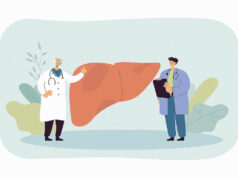By Nickky Faustine P. de Guzman, Reporter
The world wide web is a double-edged sword. While it conveniently connects the world to make it smaller, it can create big problems for poor families, especially the children who are vulnerable to online exploitation. According to World Vision Philippines — a Christian development, advocacy, and relief organization — children and babies as young as three months old have been victims of livestream sexual abuse. In reaction to this alarming situation, the organization is launching a campaign in which it hopes to protect three million Filipino children against online sexual abuse by 2020.
“It’s the awareness, the life skills for children, for them to know that what they are getting into is the unsafe part of the Internet,” Katherine Yee, campaign advocacy manager, told BusinessWorld on March 23 at the sidelines of World Vision Philippines’ 60th anniversary celebration.
She said making children — anyone under the age of 18 — aware of the pitfalls of the Internet is the top campaign strategy. But the awareness campaign must also include the children’s parents.
“Mostly in the Philippines, what we need is to reach the point of awareness. There are three players that come into play in this problem: the perpetrators, the suppliers, and the kids. There is somebody who gets the children, and, sad to say, the suppliers are not strangers to the children. It’s very sad that sometimes even their own parents [exploit them],” said Ms. Yee.
The campaign strategies also include the empowerment of the children’s caregivers, their support and rescue, and establishment of an online hotline.
The Philippines — which, despite its slow internet connection, is the top country when it comes to the most time spent watching porn online — ranks 10th worldwide when it comes to the prevalence of sexual exploitation among children ages 10 to 14, said World Vision Philippines. And according to International Justice Mission (IJM), an advocacy co-partner, Cebu is among the areas with high online sexual crime — which is why Cebu City is among the three top location sites of the campaign. Since 2006, IJM has rescued more than 600 children in Cebu from sex trafficking.
The campaign, called “It Takes a World to End Sexual Exploitation Against Children,” will start in Cebu, Manila, and Misamis Occidental. In the program’s second year, it will be launched in Malabon, Albay, North Cebu, Leyte, Bukidnon, and West Misamis, and on its third and last year, in Camarines Norte and Sur, Batangas, Pangasinan, Sorsogon, Samar, Bohol, Aklan, Antique, Zamboanga del Norte, and North Cotabato.
Besides the awareness campaign, the advocacy will also work on legislation. One of the challenges to solving cybersex crime lies in the country’s online connection system. Our Internet Protocol (IP) address, an identifier assigned to a user/computer, is not dedicated to one user but is shared. “You may have your own IP [address], but here you are sharing it with others, that’s why it is difficult to pinpoint the true perpetrators,” said Ms. Yee. The campaign will “go to the Congress and look for someone who will champion it for us. And we need the mobile service providers to provide one IP address per person,” she said.
World Vision knows its crusade will be challenging. “Campaigns are designed to be short term, but we will continue and include this as part of the regular things that we are doing. After 2020, we’ll target another set target,” said Ms. Yee.




